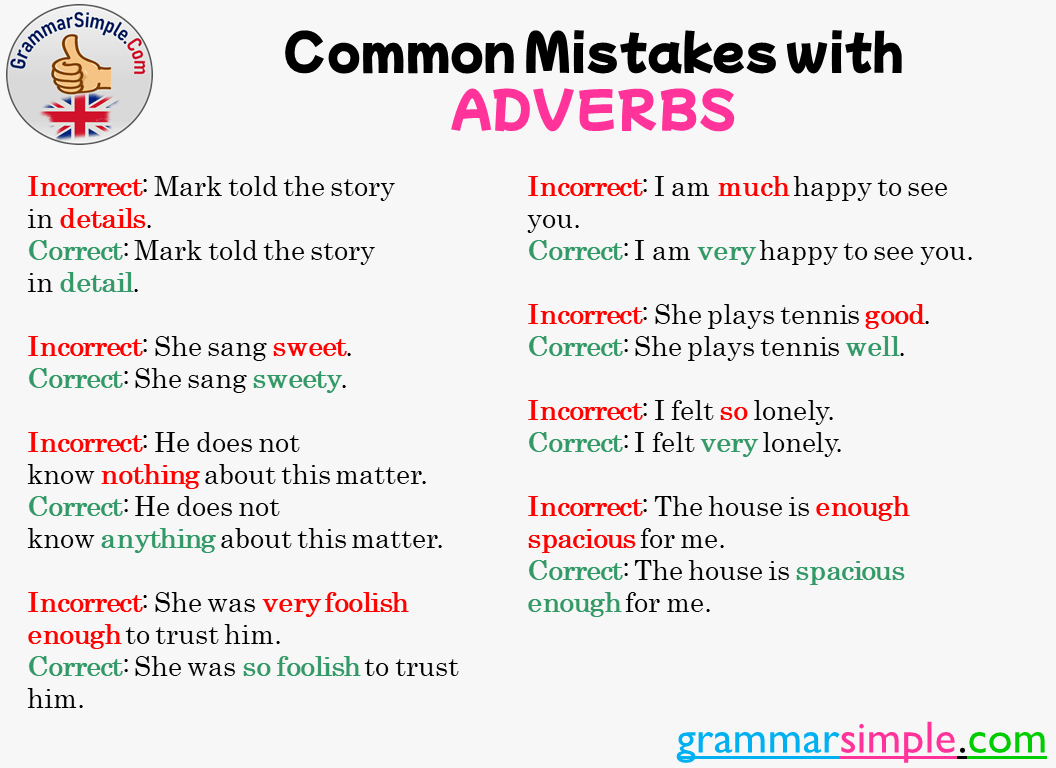Common Mistakes with ADVERBS


Common Mistakes with ADVERBS
Adverbs, verbs, or predicates that you often come across in sentences in English characterize the situation, tense, or few-many. Some adverbs are the same as adjectives, and some words need to be added to the end to make them adverbs.
Table of Contents
Types of Adverbs
- Conjunctive adverbs
- Adverbs of frequency
- Adverbs of time
- Adverbs of manner
- Adverbs of degree
- Adverbs of place
Incorrect: Mark told the story in details.
Correct: Mark told the story in detail.
Incorrect: She sang sweet.
Correct: She sang sweety.
Incorrect: He does not know nothing about this matter.
Correct: He does not know anything about this matter.
Incorrect: She was very foolish enough to trust him.
Correct: She was so foolish to trust him.
Incorrect: I am much happy to see you.
Correct: I am very happy to see you.
Incorrect: She plays tennis good.
Correct: She plays tennis well.
Incorrect: I felt so lonely.
Correct: I felt very lonely.
Incorrect: The house is enough spacious for me.
Correct: The house is spacious enough for me.
Recent Posts
Use Rose in a Sentence, How to Use Rose with Example Sentences
Use Rose in a Sentence, How to Use Rose with Example Sentences
Use Yourself in a Sentence, How to Use Yourself with Example Sentences
Use Yourself in a Sentence, How to Use Yourself with Example Sentences
Use Picture in a Sentence, How to Use Picture with Example Sentences
Use Picture in a Sentence, How to Use Picture with Example Sentences
Use Claim in a Sentence, How to Use Claim with Example Sentences
Use Claim in a Sentence, How to Use Claim with Example Sentences
Use Treasure in a Sentence, How to Use Treasure with Example Sentences
Use Treasure in a Sentence, How to Use Treasure with Example Sentences
Use Raise in a Sentence, How to Use Raise with Example Sentences
Use Raise in a Sentence, How to Use Raise with Example Sentences